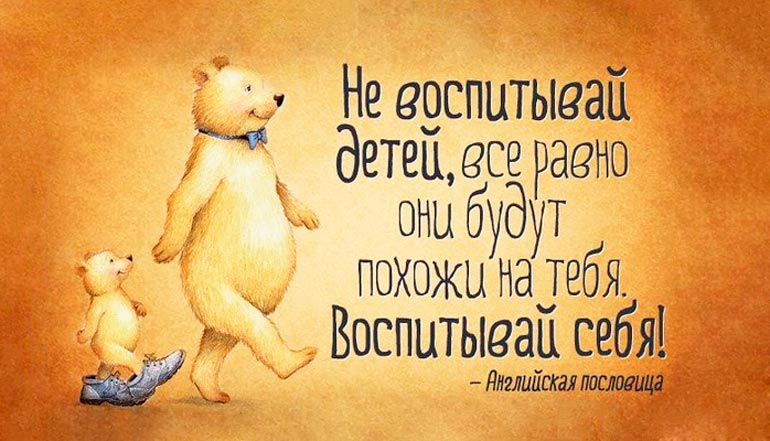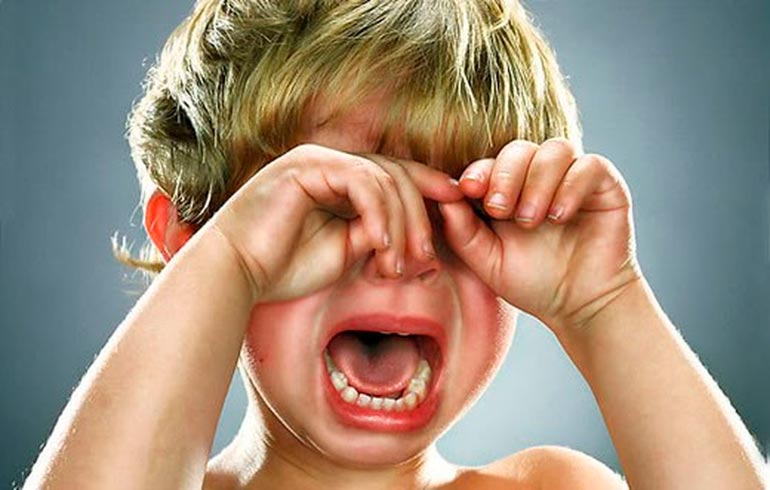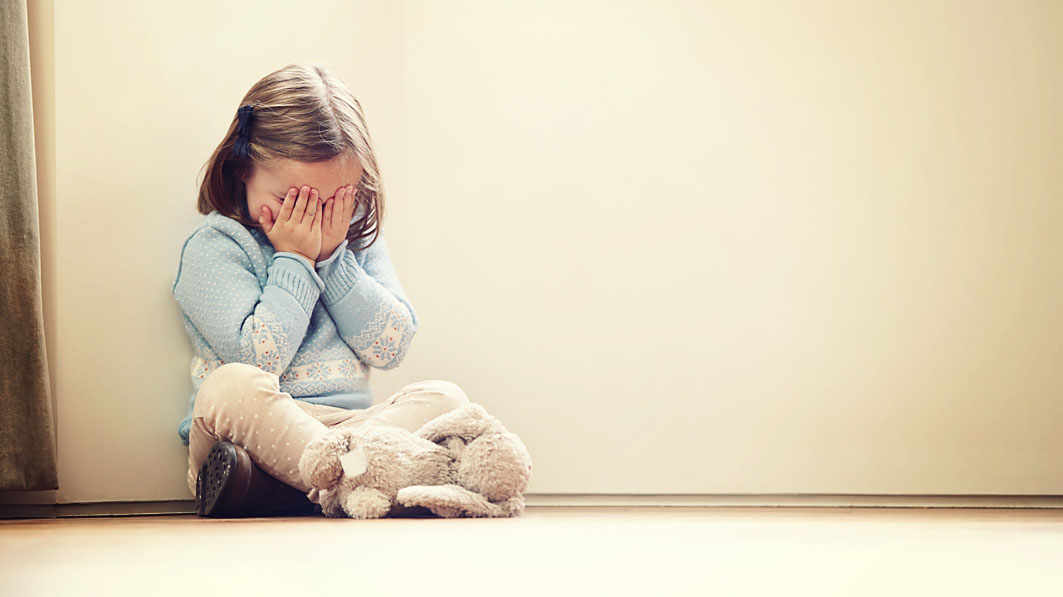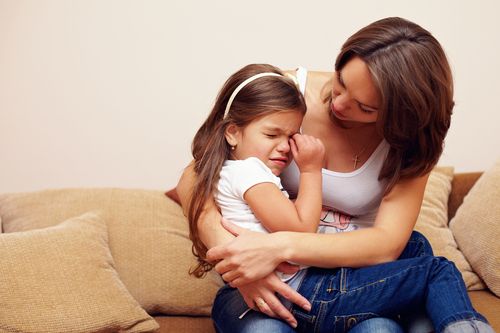How often, in a fit of anger, parents say to children words that deeply penetrate the consciousness, injure, leaving a mark there for many years. As a result of improper actions by adults, the child becomes aggressive, his self-esteem decreases, and parents cease to be his authority. How to avoid this? Let's look at the 7 mistakes that adults make during quarrels with their children, and then try not to repeat them.

1. Focusing on the individual, not on deeds
When a baby does not do well, parents often tell him that he is bad, pronounce phrases like “I don’t need such a child!” or "You are a terrible boy!" With such statements, mom and dad hurt their children. It is important that the little one understands that it is not he who is bad, but the act that he committed that causes disapproval of his parents.
2. Shifting their guilt to children
Sometimes, during severe irritation, parents begin to scold children for what, in fact, they are not to blame. For example, mother forgot to remove a plate or cup from the table, and the baby, running past, hit it, she fell and crashed. Or another case - dad allowed to pet the neighbor's dog, and he bit the baby. And dad scolds the child - don’t you know that a dog can bite? Who is to blame for this? Is it a child? Why blame or punish him? By shifting the blame from themselves to the children, the parents will be able to achieve only one thing - over time, their child will do the same, he will not recognize his mistakes. I think everyone will remember a situation where you have to scold yourself, and we scold the child.
3. Demonstrating Excellence

Adults often demonstrate their own superiority to their children, which causes them to feel inferiority and humiliation, frustration and resentment. This can be illustrated by the example of such a situation when one of the parents, taking the toy away from the child, puts it on the closet or where the baby cannot get it from. What happens to the child at this time? He is desperate, he feels his own impotence and deep resentment, he begins real tantrum. You need to help the baby cope with their feelings, and parents further exacerbate the situation, leaving him alone to think about his behavior.
4. Punishment by deprivation of material goods
[sc name = ”rsa”]
Do you use this technique - having promised to buy a toy for your son or daughter, you take your words back if the child behaved badly? Most parents do this to get obedience from their children.But is that right? Undoubtedly, this method helps to quickly put the children in their place, but what motivates them to obey - do they really think about the feelings of father and mother? No, in this situation the child is only concerned about his own benefits. When he gets older, he will understand that it is better to please his parents, so as not to be deprived of material wealth, and not out of respect for the elders. In this case, the teenager will accumulate his own feelings, resentment, anger and irritation inside himself. Never punish children by depriving them of material things, but teach them to respect your feelings, explain why you should do this and not otherwise.
5. Aggression, rudeness, physical punishment

If during a quarrel with a child, mom or dad lose control over themselves, make rude statements, shout, use force to educate, then the children adopt their mode of action. They learn from parents that in a critical situation, loss of control over oneself is the norm, that the one who is stronger, who screams louder and more rudely is right. While the child is small, it seems that such educational measures work, but in fact the baby is simply afraid of the reaction of the parents, therefore it behaves well. Young children cannot repulse adults - hit, shout, but when they grow up, we should expect a similar rebuff from them.
We also read: consequences of physical punishment of children
6. Demand an apology when parents themselves do not.
To teach children something, you need to set a personal example for them. Parents will not be able to instill in the child the habit of asking forgiveness for their actions if they themselves do not. There are situations with everyone when, under the influence of fatigue or irritation, we can utter a bunch of offensive words to children. After a quarrel, we regret what was said, so why not tell our daughter or son: “Forgive me, I told you offensive words, in fact I don’t think of you like that.” What will follow? Usually the kids also apologize for the bad behavior, hugging their parents. Ask for forgiveness even when both sides are to blame, do it first so that the children take an example from you.
Frankly, sometimes I myself break down and say insulting words to my daughter, about which I later regret. But I always try to apologize for them. I tell my daughter: “Forgive me, please. I flushed up and told you not at all what I really think. ”My daughter usually apologizes at this moment too:“ Mommy, and you forgive me. I was so capricious and behaved very badly. It was unpleasant for you. Will you excuse me? ” And we usually cuddle.
In situations where we were both good, I usually apologize first. And at the same time I do not reproach my daughter, I do not say that she was also wrong. The daughter herself admits her part of the guilt in such situations and apologizes.
7. Use of derogatory punishments
When the baby is guilty, he is punished, but you need to do this correctly. Applying educational measures, use the rule - it is better to deprive a child of good than to make him ill. For example, it is better to refuse the baby to watch cartoons or read at night, than to raise his voice and spank. Remember - you can not humiliate a child by punishing him, so never scold children in the presence of strangers. If you are in a crowded place, and the baby is behaving very badly, either postpone the education for later, or step aside and talk to him quietly.
We also read:
- 8 loyal ways to punish children. How to punish a child for disobedience
- Is it necessary to punish a child at 3 years: opinion of parents and psychologist
In the education of children, you can make a lot of mistakes, because we are all human. A simple rule helps to reduce the number of conflict situations - before you say something to the children, say it to yourself. When the situation is heating up, scroll through this phrase in your head, it will help to stop at the right time, and therefore, to avoid mistakes. Applying this rule, you will notice that children will show respect, their self-esteem will increase, they will begin to control their words.
We also read: Top 10 Parent Mistakes in Parenting
“School of young fathers”: “How to quarrel with a child”
Major mistakes in raising children










I remember my case from childhood. I somehow forgot to take out the trash, which my father says to me in the evening: “If you don’t take out the trash, wash the dishes, clean the house, why do we need you?” Terrific statement, right? I remember everything as it is now, I do not like my father to this day, although I became a mother already 28 and a year ago. I hope my children will never know such a feeling.
A favorite means of punishment from parents is a corner! The most useless event. The child with great pleasure will find something to do and quickly forget that someone there swore at him.